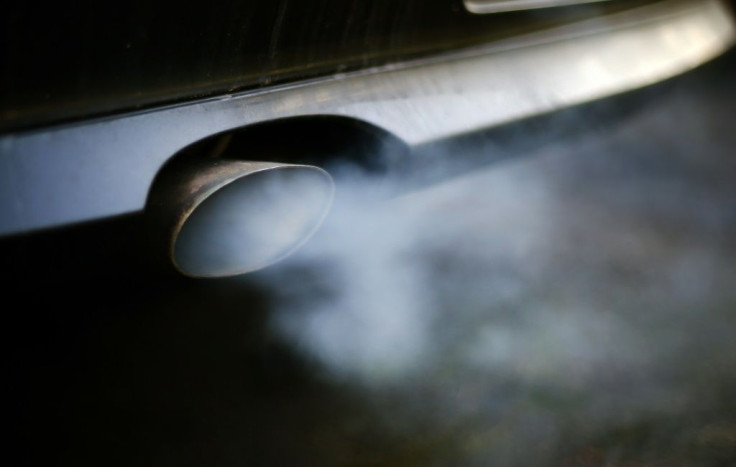German Climate Groups Plan Legal Action Against Car Giants
German environmental groups on Friday announced a legal offensive against car giants Volkswagen, Daimler and BMW to force them to reduce emissions faster, emboldened by recent court victories in favour of climate protection.
Greenpeace Germany and Deutsche Umwelthilfe (DUH) said they have sent a claim letter to the three carmakers asking them to commit to more ambitious targets for reducing carbon emissions, including ending production of fossil-fuel cars by 2030.
If they do not respond to the letter in the coming weeks and halt their "illegal behaviour", the NGOs said they are ready to file lawsuits in court.
"We are holding those companies to account that have been destroying our climate for years," DUH executive director Sascha Mueller-Kraenner told a press conference.
While all three car companies have announced plans to transition from diesel and petrol cars to more environmentally-friendly electric vehicles, the plaintiffs say their goals are vague and non-binding.
"The companies' electrification plans are not ambitious enough and too slow. They won't be enough to avert the climate crisis," said Greenpeace's Martin Kaiser.
A fourth company, German oil and gas firm Wintershall Dea, is also being targeted in the legal proceedings for its role in the climate emergency.
The complaints, if they go ahead, would be a first in Germany.
The plaintiffs are basing their case on a landmark verdict by Germany's constitutional court in April which found that Germany's plans to curb CO2 emissions were insufficient to meet the targets of the Paris climate agreement and placed an unfair burden on future generations.
In a major win for activists, Chancellor Angela Merkel's government then brought forward its date for carbon neutrality by five years to 2045, and raised its 2030 target for greenhouse gas reductions.

Greenpeace's Kaiser said the plaintiffs also received "a tailwind" from a court ruling in the Netherlands in May, which ordered oil giant Shell to slash its carbon emissions by 2030.
Fridays for Future activist Clara Mayer, who is acting as a plaintiff in the case against VW, said recent deadly floods in western Germany had shown that the climate emergency "is now right outside our front door".
She said VW, as one of the world's largest carmakers and a major CO2 emitter, had "an immense responsibility".
The 12-brand group, which also includes Audi, Porsche and Skoda, said in a statement that it did not believe the campaigner's legal route was "an appropriate way to solve important societal challenges".
It added that VW was investing 35 billion euros ($41 billion) in its bid to become a global leader in electric vehicles by 2025.
Mercedes-Benz maker Daimler meanwhile said it "sees no basis" for the injunction demand and vowed to defend itself "through all legal means" should it come to a lawsuit.
Luxury carmaker BMW reiterated that the company was committed to the Paris climate agreement, which aims to limit global warming to 1.5 degrees Celsius compared with pre-industrial levels.
The spectre of legal action against the car manufacturers comes just days before the IAA auto show, one of the world's biggest, opens its doors in Munich.
Climate campaigners have vowed to stage protests to disrupt the event.
© Copyright AFP 2024. All rights reserved.







